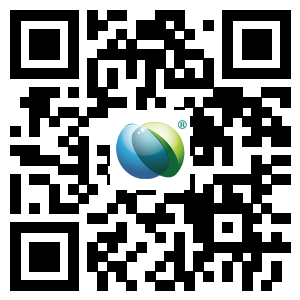The Future of Earthquake Monitoring: Benefits of Using Digital 3C Geophones
Apr 22,2025
The Future of Earthquake Monitoring: Benefits of Using Digital 3C Geophones
Table of Contents
Introduction to Digital 3C Geophones
How Digital 3C Geophones Work
Advantages of Digital 3C Geophones in Earthquake Monitoring
Applications of Digital 3C Geophones
Comparing Analog and Digital Geophones
Future Trends in Seismic Monitoring Technology
Challenges and Limitations of Digital 3C Geophones
Conc
The Future of Earthquake Monitoring: Benefits of Using Digital 3C Geophones
Table of Contents
- Introduction to Digital 3C Geophones
- How Digital 3C Geophones Work
- Advantages of Digital 3C Geophones in Earthquake Monitoring
- Applications of Digital 3C Geophones
- Comparing Analog and Digital Geophones
- Future Trends in Seismic Monitoring Technology
- Challenges and Limitations of Digital 3C Geophones
- Conclusion
- FAQs
Introduction to Digital 3C Geophones
The advancement of technology has significantly changed the landscape of earthquake monitoring. Digital 3C geophones are at the forefront of this transformation, providing enhanced capabilities compared to traditional monitoring systems. These devices are essential for researchers, engineers, and emergency response teams, enabling them to gather detailed seismic data crucial for understanding and responding to seismic events.
How Digital 3C Geophones Work
Digital 3C geophones are sophisticated instruments that measure ground motion in three dimensions—horizontally and vertically. They utilize advanced sensors and digital processing to capture seismic waves with unparalleled accuracy.
The Operating Principles of Digital 3C Geophones
These geophones operate on the principle of electromagnetic induction, where ground motion causes a mass to move relative to a coil, generating an electrical signal. The signals are then digitized for analysis. This process allows for real-time data collection and transmission, facilitating immediate analysis and response.
Data Processing and Transmission
Digital geophones integrate advanced algorithms for filtering noise and enhancing signal clarity. The processed data is transmitted via wireless or wired networks, ensuring that seismic information is available to researchers and monitoring centers almost instantaneously.
Advantages of Digital 3C Geophones in Earthquake Monitoring
The transition from analog to digital geophones brings several significant benefits for earthquake monitoring, enhancing data quality and operational efficiency.
Enhanced Accuracy and Sensitivity
Digital 3C geophones offer improved sensitivity, allowing them to detect even minor seismic activities that analog devices might miss. This heightened accuracy is crucial for early warning systems and detailed seismic studies.
Real-time Data Analysis
The ability to process data in real-time enables researchers to analyze seismic events as they occur. This immediacy is vital for timely alerts and effective disaster response strategies.
Reduced Maintenance and Operational Costs
Digital systems typically require less maintenance than their analog counterparts, reducing operational costs over time. Their durability and reliability also contribute to lower long-term expenses.
Improved Data Storage and Retrieval
Digital geophones store vast amounts of data efficiently. The digitized format allows for easy retrieval, archiving, and sharing of seismic information among various stakeholders and research facilities.
Applications of Digital 3C Geophones
The versatility of digital 3C geophones makes them applicable in various sectors beyond traditional earthquake monitoring.
Seismic Research and Studies
Researchers utilize digital 3C geophones for in-depth studies of seismic activity, fault lines, and earth structure. The precise data collected aids in developing models that predict future seismic events.
Infrastructure Monitoring
Digital geophones are increasingly being used to monitor the integrity of infrastructure, such as bridges and buildings, in earthquake-prone areas. Continuous monitoring allows for early detection of potential damage or flaws.
Oil and Gas Exploration
In the energy sector, digital geophones play a critical role in exploration efforts. They provide valuable insights into subsurface geology, aiding in the identification of potential drilling sites and resource extraction.
Comparing Analog and Digital Geophones
Understanding the differences between analog and digital geophones is vital for selecting the right technology for specific applications.
Signal Quality and Processing
Analog geophones often produce lower quality signals due to inherent noise and limitations in processing. In contrast, digital geophones filter out noise and provide clearer, more reliable data.
Ease of Integration and Compatibility
Digital systems offer superior compatibility with modern data analysis tools, making them easier to integrate into existing monitoring systems. This flexibility is essential for organizations looking to upgrade their capabilities.
Future Trends in Seismic Monitoring Technology
As technology continues to evolve, several trends are shaping the future of seismic monitoring.
Incorporation of Machine Learning and AI
The integration of machine learning and artificial intelligence into seismic monitoring systems enhances data analysis and predictive capabilities. These technologies can identify patterns and anomalies, leading to better forecasting of seismic events.
Development of Smart Geophysics
The rise of smart geophysical instruments that can communicate and collaborate with each other is transforming monitoring practices. These smart devices will streamline data collection and improve response strategies during seismic events.
Challenges and Limitations of Digital 3C Geophones
Despite their numerous advantages, digital 3C geophones face challenges that must be addressed for optimal performance.
Environmental Sensitivity
While digital geophones excel in many scenarios, they can be sensitive to environmental factors such as temperature and humidity. These conditions can affect their performance and data accuracy.
Cost Considerations
The initial investment in digital geophone technology can be significant. Organizations must weigh the long-term benefits against the upfront costs to determine feasibility.
Conclusion
The evolution of digital 3C geophones marks a significant advancement in earthquake monitoring technology. With their ability to provide accurate, real-time data, these instruments are essential for improving safety and understanding seismic activity. As we continue to explore the capabilities of digital geophones, their role in enhancing monitoring efforts and shaping future technologies cannot be overstated. Investing in these advanced tools will empower researchers, engineers, and emergency responders to better protect communities and infrastructure from the impacts of earthquakes.
FAQs
1. What is a digital 3C geophone?
Digital 3C geophones are instruments that measure ground motion in three dimensions, providing detailed seismic data.
2. How does a digital 3C geophone work?
These devices utilize electromagnetic induction to convert ground motion into electrical signals, which are then digitized for analysis.
3. What advantages do digital geophones have over analog geophones?
Digital geophones offer enhanced accuracy, real-time data analysis, reduced maintenance costs, and improved data storage.
4. Where are digital 3C geophones used?
They are used in seismic research, infrastructure monitoring, and oil and gas exploration, among other applications.
5. What are the future trends in seismic monitoring technology?
Key trends include the integration of machine learning, AI, and the development of smart geophysical instruments for enhanced collaboration and analysis.
BLOG
CONTACT
Tel: 0086-0551-65327898 / 65327899
Fax: 0086-0551-65327899
E-mail: hfgwe@hfgwe.com
Add: 9th Floor, Building A, G3, Phase II, Innovation Industry Park,No. 2800 Innovation Avenue, High-tech Zone, Hefei city,Anhui Province, China

Mobile website
Hefei Guowei Electronics Co., Ltd.
Subscribe Us
We will contact you within one working day. Please pay attention to your email.
CopyRight:Hefei Guowei Electronics Co., Ltd. Powered by 300.cn SEO






